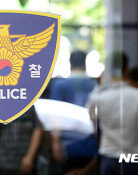Korea should not be swayed by China in decision over THAAD
Korea should not be swayed by China in decision over THAAD
Posted March. 12, 2015 07:23,
On the U.S. Terminal High Altitude Area Defense (THAAD) missile defense system, South Korean presidential spokesperson Min Kyung-wook said on Wednesday, The governments stance is 3 NOs -- No request, No consultation and No decision--, which means that there has been no request (from the U.S.), no consultation and no decision. Regarding the ruling Saenuri Party leaderships promise to gather public opinion over the defense system, which came at the policy coordination meeting among the administration, the ruling party and the presidential office Cheong Wa Dae, Min also drew a clear line, by saying that Korea needs to take a cautious approach toward THAAD.
The presidential office seems to have decided that public discussion over the THAAD deployment may restrict South Koreas diplomatic position and strategies when it comes to Korea-U.S. or Korea-China relations. It is in the same vein when the Ministry of National Defense admits deployment of the defense system would enhance Koreas national security but continuously denies that there is no plan to purchase. However, if the government postpones such decisions related to the national security and reads other neighboring nations mood, it will leave the Korean people insecure and the neighboring countries will look down on us.
Author Kim Jin-myungs novel THAAD, which was released last year, depicts the defense system as a silver bullet that can neutralize all missiles in China, not a defensive weapon for our nations survival. The New Politics Alliance for Democracy (NPAD) lawmakers have similar views over the system and raise their voices, saying, The missile system can contain China and Russia for protection of the U.S. mainland. If THAAD is deployed in Korea, the Korean Peninsula will become the first target of attack from China and Russia.
China argues that the defense system would be used to monitor China as the THAAD radar, also known as X-band radar, has a scanning scope to reach 2,000 kilometers. However, THAADs radar detection distance is mere 600 kilometers. China has connived North Koreas nuclear armament by taking a lukewarm position, and it has no right and cause to oppose Korea to deploy THAAD against North Koreas nuclear threat.
On March 2 when the Korea-U.S. joint military exercise Key Resolve started, North Korea shot two ballistic missiles to the East Sea. Those missiles flied 495 kilometers and 493 kilometers, respectively. This incident confirmed that the communist regime can attack anywhere in the South if it moves the launcher close to the military demarcation line. Against this backdrop, some left-wingers claim that the deployment of the THAAD system would make South Korea subjugated to the U.S., which is a distortion of the facts. Koreas air defense system on land is the PAC-2 missiles that are only capable of hitting targets at a maximum altitude of 15 kilometers. On the contrary, the THAAD can hit missiles in the air at the altitude of 40-150 kilometers above the ground.
Introduction of a strategic defense system such as THAAD must be determined by the government considering national security. President Park Geun-hye, the supreme commander of the armed forces in Korea, must gather various opinions to make a final decision and persuade the public and neighboring countries. The main opposition NPAD must not remain as naysayers. If believing that deployment of THAAD is to choose either the U.S. or China, it just blindly follows Chinas logic. The NPAD has been emphasizing that there is no distinction between the ruling and the opposition in terms of the national security to reform its image. If the main opposition party wants to put such commitment into action, it must change its stance in discussion for THAAD.







